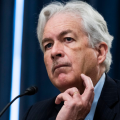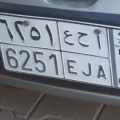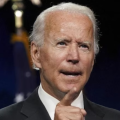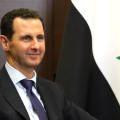Saudi Arabia Reinstates Ambassador to Syria: A Shift in Middle Eastern Diplomacy
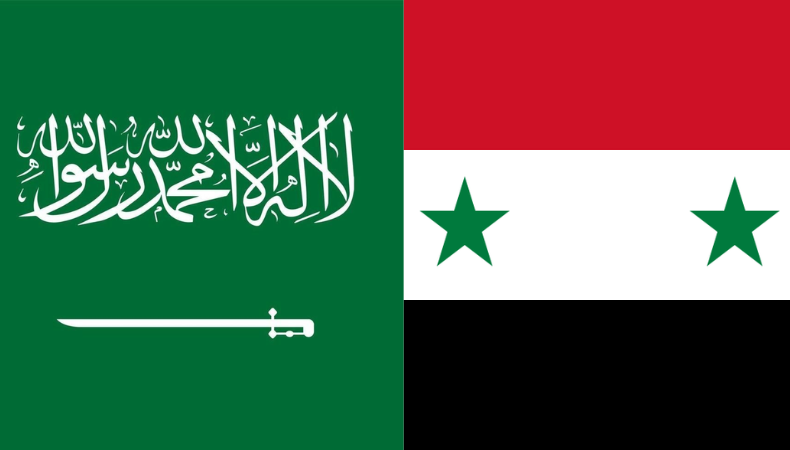
Since Saudi Arabia decided to send its ambassador back to Syria after a 12-year absence, Middle Eastern diplomacy has changed significantly. This appointment of ambassador Faisal Al-Mujfel heralds a warming of ties between the two countries.
A Diplomatic Freeze is Over
The appointment occurs more than a year following Syria’s readmission to the Arab League, which lifted a ten-year ban brought on by President Bashar Assad’s bloody suppression of anti-government protestors in 2011. One could see this diplomatic relationship reestablishment as a component of a larger realignment of the region. Syria’s polarising position has been highlighted by its isolation from the Arab world since the start of the catastrophic civil war and the ensuing imposing of harsh international sanctions.
The Change-Catalyst
Most Arab countries reestablished their relations with President Assad as a result of the earthquake that rocked Turkey and northern Syria in February of 2023. This humanitarian catastrophe led to a review of diplomatic positions and an appeal for cooperation throughout the region. The level of human suffering and the pressing necessity for aid and rehabilitation made it clear that Syria could not be kept apart permanently after the earthquake.
More General Consequences
Reappointing a Saudi ambassador to Syria takes place in the framework of changing Middle Eastern alliances and strategic aim reassessment. The decision of Saudi Arabia to reestablish diplomatic relations with Iran after recent negotiations in Beijing is another sign of the shifting geopolitical environment. This step lowers the possibility of confrontations and creates new opportunities for political and commercial cooperation as part of a larger plan by Riyadh to fortify its links throughout the region.
Alignment by Region
Normalising contacts with once hostile countries is one facet of the larger trend of regional realignment, which also includes Saudi Arabia’s rekindled involvement with Syria. Warming relations alone are insufficient; the region’s geopolitical chessboard also has to be redesigned. Other Gulf and other Arab nations are reviewing their Syria policies and postures as part of this realignment. For instance, the UAE has stayed close to Damascus; in 2018, it restored its embassy there and supported Syria’s admission to the Arab League.
Approaches for the Humanitarian and Economic Domains
There are serious economic factors at work even if the earthquake’s humanitarian catastrophe brought Syria’s urgent demands to light. Especially in sectors like energy, infrastructure, and rehabilitation, the restoration of Syria offers chances for investment and economic collaboration. Saudi Arabia is in a position to make a major contribution to these projects, which can also further its own strategic goals in the area, given its wealth and regional clout.
The Part International Players Play
Regional organisations and big nations are keeping a careful eye on these changes. China’s role in helping Saudi Arabia and Iran reconcile points to non-Western nations playing a bigger part in Middle Eastern diplomacy. The United States and Europe, meantime, continue to exercise caution while striking a balance between their geopolitical goals and worries about human rights and regional stability.
In Brief: A New Chapter
The whole community keeps a careful eye on Syria and Saudi Arabia as their diplomatic contacts are restored. A Middle East where diplomacy and communication rule over isolation and hostility may result from this evolution. Restoring these ties opens a new chapter in Middle Eastern diplomacy by implying a move towards more regional integration and the possibility of resolving long-standing problems via communication and mutual understanding.
Tough Times Ahead
Still, there are difficulties in this new century. Obstacles are mainly past disputes, mistrust, and political differences. As diplomatic channels open again and communication is given top priority, there is nevertheless optimism for the future. In the end, the ability of both countries to hold substantive, protracted talks and put the peace and prosperity of the region ahead of immediate political benefits will determine how well this diplomatic thaw works.
Knowing Local History
The historical context is crucial to understanding the importance of this diplomatic change. Different political beliefs, the Sunni-Shia split, and regional power conflicts have all contributed to years of tense relations between Saudi Arabia and Syria. The relationship between Assad’s government and Iran has grown as a result of Saudi Arabia’s backing for rebel groups in Syria. These differences were widened by the Syrian civil war, in which Saudi Arabia supported different rebel groups and called for Assad’s ouster.
Path Ahead
There is optimism for the future in spite of challenges. Both countries will have to bargain in order to restore confidence and cooperation. Important fields of cooperation could be business endeavours, cross-cultural interactions, and counterterrorism initiatives. Reintegrating into the area may help Syria rebuild and get much-needed financial support, all the while advancing Saudi Arabia’s goals for regional security and economy.
Keep Reading
World Reactions
Mixed has been the reaction to this development worldwide. Other Arab and non-Western states see this reconciliation as a step towards regional stability, even if some Western governments are still wary because of Assad’s human rights record. This realignment might spur similar diplomatic efforts meant at regional collaboration and conflict resolution, which might have an effect on other unstable Middle Eastern regions.
Remarks on Closing
Redoubling diplomatic efforts should help the people of Syria and the larger Middle Eastern area as the world observes this developing situation. There are chances for wealth and peace as great as the difficulties. Re-appointment of Faisal Al-Mujfel as Saudi Arabia’s ambassador to Syria marks the beginning of a new era in Middle Eastern relations that puts mutual understanding, cooperation, and communication ahead of historical hostility.

